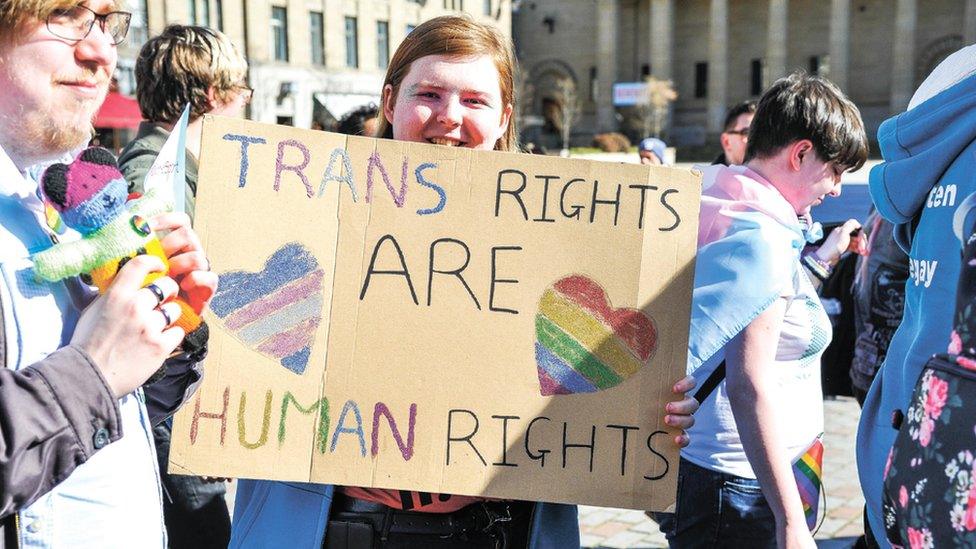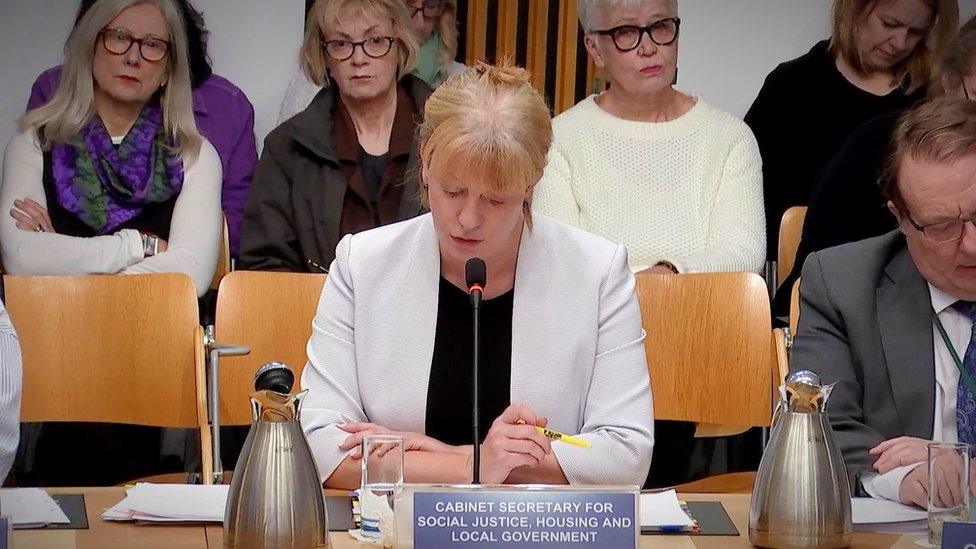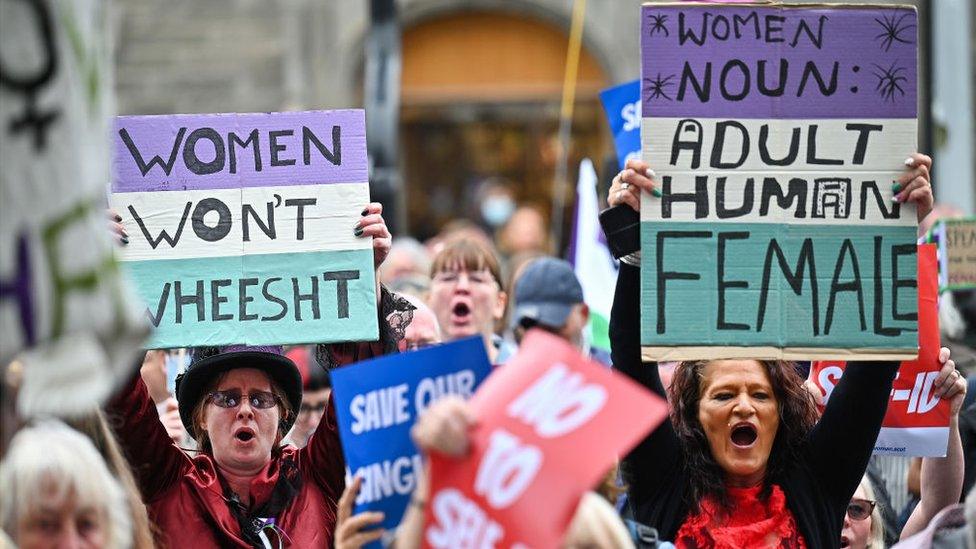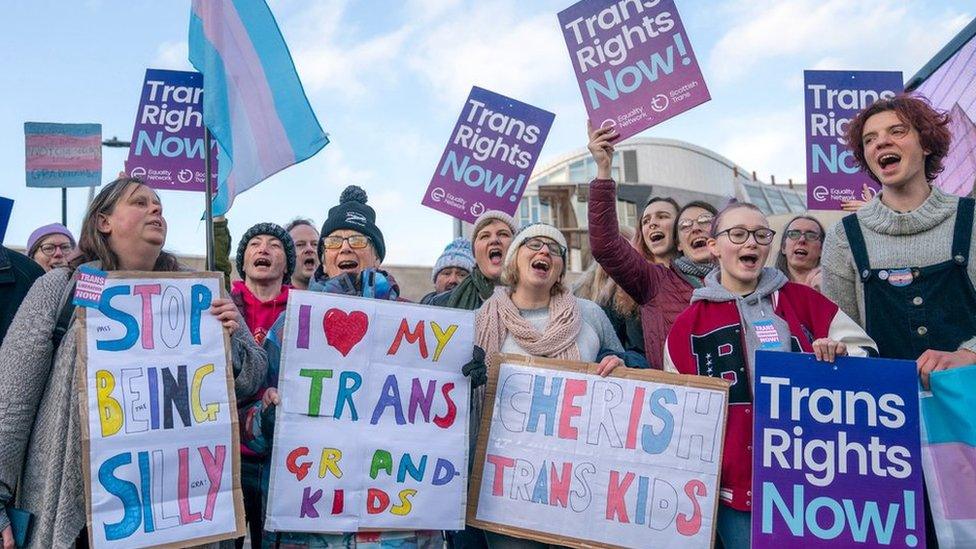MSPs vote for changes to gender recognition bill
- Published

A bill that aims to make it easier for Scots to legally change their gender is to be amended.
A Holyrood committee voted to change provisions for 16 and 17-year-olds.
They will have to live in their acquired gender for at least six months rather than three before applying for a gender recognition certificate.
Social Justice Minister Shona Robison also said the government supported creating an offence to tackle fraudulent applications.
The changes were voted for in a meeting of Holyrood's equalities, human rights and civil justice committee on Tuesday.
Members were considering the Gender Recognition Reform (Scotland) Bill at its second stage.
A woman was ejected from the committee meeting for refusing to remove a scarf in suffragette colours - the Scottish Parliament's presiding officer later said this was an error.
The Scottish government argues that the current process for obtaining a gender recognition certificate is too difficult and invasive, and causes distress to an already marginalised and vulnerable minority group.
Its proposal would see applications handled by the Registrar General for Scotland, rather than the UK panel.
No diagnosis or medical reports would be required, and the period in which adult applicants need to have lived in their acquired gender would be cut to three months.
The bill passed stage one at the end of October, though seven SNP MSPs defied the whip to vote against it.
Scottish government minister Ash Regan also quit saying her conscience would not allow her to support the plans.
Opponents of the bill have raised concerns about the impact of the legislation on women and girls, while supporters say it will have little impact outside the trans community.

Shona Robison backed amendments for provisions for 16 and 17-year-olds
The SNP's Christine Grahame proposed a number of amendments at the committee which were backed by the Conservatives' Jackson Carlaw.
Although changes were proposed for 16 and 17-year-olds, the period for living in an acquired gender before an application was maintained as three months for people age 18 and over.
Ms Grahame said she wanted to "put precautions and support in" for the younger age group.
Ms Robison said she backed Ms Grahame's amendments, adding: "Increasing the time period to six months would allow many young people greater opportunity to access guidance before applying, which they can confirm to the registrar general."
Maggie Chapman, a Green member of the committee, was opposed to the change.
She argued that the age of legal capacity was already set as 16, saying: "It's almost as if we trust them to make big legal decisions on their own.
"I don't see why this should be any different."
Sex offender requirement
The Conservatives' Russell Findlay also put forward a number of amendments which sought to prevent registered sex offenders from acquiring a gender recognition certificate.
He said the bill as it stands would allow male sex offenders to change their identities, adding that "prisons are full" of men who seek to exploit loopholes in the law.
He also raised concerns that female victims of sexual offences may have to refer to male attackers as "she or her" in the dock.
Mr Findlay said: "It risks making a mockery of the justice system and re-traumatising victims of sexual violence."
Ms Robison said she could not back Mr Findlay's amendment, but said the Scottish government was bringing in other changes.
One of these was a new requirement under the sex offenders notification scheme for offenders to alert police if they made an application for a gender recognition certificate.
Applications could be made to a sheriff if someone believed a certificate was being obtained fraudulently, she said.
The minister also said the government backed the "principle" of a new offence of fraudulently applying for a gender recognition certificate.
- Published9 November 2022

- Published8 December 2023
